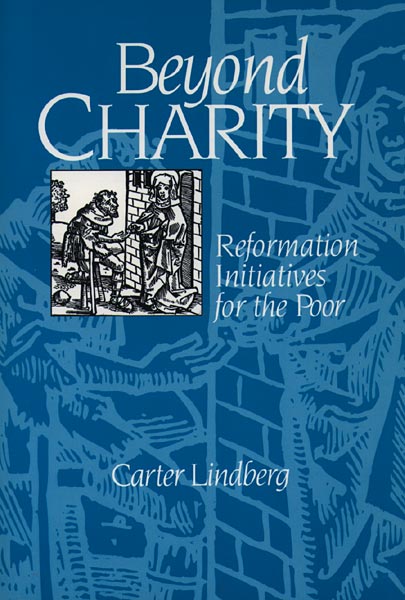Beyond Charity: Reformation Initiatives for the Poor
The common stereotype is that the Reformers
separated public and private morality and
were indifferent to the ethical import of
social structures and institutions.
Beyond
Charity calls this understanding into
question by providing an analysis of the
historical situation and translations of
primary documents. The medieval point of
view, formed by piety of achievement,
idealized poverty -- either as voluntary
renunciation or as almsgiving. In either
case the material effects on actual poverty
were slight, and the religious endorsement
of poverty precluded urban efforts to
address this growing problem. The Reformers
impelled by their theology, developed and
passed new legislative structures for
addressing social welfare needs. The key to
their undertakings was the conviction that
social ethics is the continuation of
community worship. In the first half, this
book sets forth the medieval context,
details Luther's critique of the profit
economy of his day, and analyzes the actual
social welfare programs that issued from his
theology. The second half provides
translations of selected legislative
programs from the church orders of the
Reformation.
- This item is not returnable
- Ships in 2 or more weeks
-
Quantity discount
- # of Items Price
- 1 to 9$22.00
- 10 or more$16.50
$22.00
